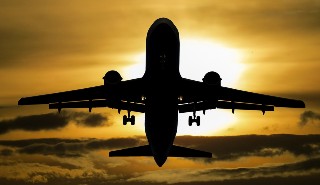University Of Reading Environmental Research Shows Fewer Flights And Cars Can Help Hit Net Zero
Travel by train, bike and bus should be the first option before flights and cars, according to bold new plans to help the University of Reading become carbon net zero by 2030.
New guidelines are being rolled out to encourage sustainable business travel and commuting for staff and students, as part of the University’s mission to become one of the greenest universities in the world.
Professor Mark Fellowes, Pro-Vice-Chancellor and Chair of the University’s Environmental Sustainability Committee, said: “We need to cut our emissions from travel if we are to meet our ambitious sustainability targets to reach net zero by 2030. We consider meeting this target a key priority as we all play our role in helping avoid the worst effects of climate change, impacts that we can already see happening around us.
“While being careful not to unfairly disadvantage staff or students, these new principles will require everyone at the University to think more carefully about our journeys and adopt greener behaviours, wherever possible.”
These guidelines will inform new University travel policies, which are currently in development.
Reducing flights
The aim is to cut business travel emissions by more than 30% compared to pre-pandemic levels by 2026, and by more than half by 2030.
A third of Reading’s emissions in 2018/19 were from business flights. For business travel, the guidelines include:
• Using videoconferencing or another digital option when viable
• Better options than air travel for destinations within the UK and nearby Western European countries, and traveling by economy when flights are necessary
• Exploring options for an air travel levy, with funds used for carbon reduction efforts.
Greener commuting
The University is currently developing a new travel plan to look at improving pedestrian, cycle and bus services and car sharing facilities, and cut single-occupancy car journeys. This may also include providing priority car park spaces for car sharers, and more electric car charging points.
The new guidelines for now include:
• New and better cycle schemes and options to support public transport
• Working with councils to improve bus services and routes for cyclists and pedestrians on routes to our campuses
• Cutting car journeys between campuses by prioritising online meetings where possible.
These are in addition to existing schemes for staff, such as the new free park and ride service, from Mereoak to Whiteknights campus.
The guidelines have been carefully considered to enable staff to reduce their travel footprint while ensuring nobody is unfairly disadvantaged due to their personal circumstances.

